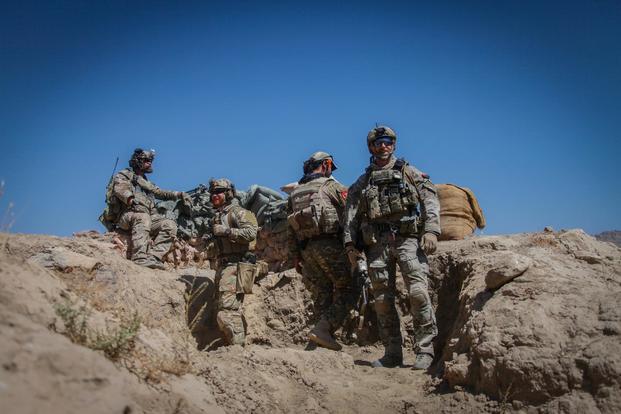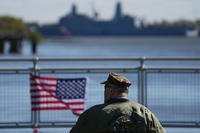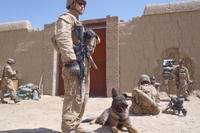The nominee to lead U.S. Special Operations Command (SOCOM) told lawmakers Tuesday that the unrelenting pace of operations may force the elite organization to pass some missions off to conventional combat units.
Army Lt. Gen. Richard Clarke, testifying before the Senate Armed Services Committee as part of his nomination process to assume command of SOCOM, said he believes it has an "adequate" number of personnel but needs to avoid taking on missions that conventional forces are capable of handling.
"Special Operations Command should only do those missions that are suited for Special Operations Command, and those missions that can be adjusted to conventional forces should go to those conventional forces," he said.
Currently, special operations forces are responsible for conducting U.S. counter-terrorism missions in Afghanistan and elsewhere and handling missions such as combating weapons of mass destruction.
The elite, multi-service SOCOM, made up of about 70,000 service members, also is slated to play a significant role in the Pentagon's new defense strategy, which focuses on near-peer adversaries such as Russia and China.
Sen. Mazie Hirono, D-Hawaii, asked Clarke whether there is a clear delineation within the Defense Department between SOCOM and conventional missions.
Clarke said Defense Secretary Jim Mattis "has been very clear ... that SOCOM should be specific to SOCOM missions, so I don't think there is any issue of delineation within the Department of Defense with that."
Hirono then asked whether the U.S. military needs to do a better job adhering to the policy of assigning SOCOM-specific and conventional missions.
"The publishing of the National Defense Strategy and relooking at the prioritization of the force has given us a very good opportunity to relook at all of our deployments, look where the forces are and make sure that SOCOM forces are, in fact, dedicated to the missions that are most important and are specific to special operations forces," Clarke said.
Sen. Tom Cotton, R-Arkansas, said recent proposals to leave SOCOM out of the proposed 5 percent cut to the DoD's budget would not guarantee that the command would not suffer.
"At a time of tight budgets, when some in the administration are already talking about cutting 5 percent from the Department of Defense budget, many people say, 'But that's OK, because since the Special Operations Command is bearing so much of the fight, it will be fully funded,' " he said. "Can you talk about your dependence on the rest of the conventional military and how our special operations forces fight with them, and why stable, predictable and increasing funding for those conventional forces is so important for Special Operations Command?"
Clarke replied that SOCOM relies heavily on conventional forces from every branch of service.
"Especially for longer-term operations, we need the support of the services," he said. " … Special Operations Command is made up of the services. Much of the recruitment, much of the force, is actually started in the conventional force and actually came up through the ranks, and they were identified as some of the best of breed in that particular service in which they served, and they raised their hand and volunteered for special operations."
The Army's conventional forces have taken responsibility for training and advising conventional forces, standing up six Security Force Assistance Brigades to help establish, instruct and enable conventional forces in countries like Afghanistan and elsewhere.
In the past, the mission to train foreign militaries fell to Army Special Forces. Special Forces units now focus on training foreign commando units.
-- Matthew Cox can be reached at matthew.cox@military.com














